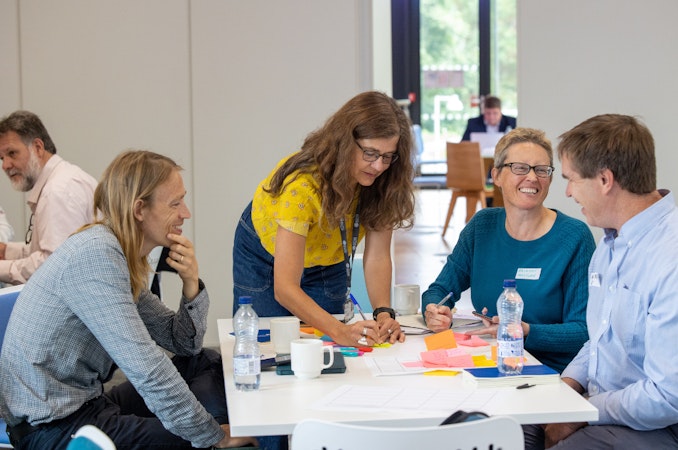Between 2022 and 2024, the British Science Association (BSA) worked with four project teams funded by the Evolution Education Trust (EET) to explore how informal nature-based education could motivate life sciences learning amongst young people aged 11 to 16.
The EET engaged the BSA to bring the project leaders together in a “Community of Practice”: a supportive environment to reflect, exchange learnings and harness collective experience to solve practical problems.
We invited the project leaders, as a group, to share their most important recommendations for those who work in education or informal learning and who seek to make nature, life sciences and the natural world more relevant to young people. We also asked these project leaders to provide suggestions for funders looking to support nature education in the future.
Case studies for the four projects are linked here:
- Evolution-based biodiversity education in Maio, Cabo Verde, West Africa, delivered by PhD student Romy Rice from the Milner Centre for Evolution, University of Bath
- Evaluating connecting with nature in the Galapagos Islands, delivered by Galapagos Conservation Trust
- Effectiveness of educational micro-interventions, delivered by Villiers Park Educational Trust in Tyneside, north-east England and Hastings in the south-east
- Plants, people and places: North Kensington, delivered by Grow to Know in London
The Cambridge Science Centre also joined the Community of Practice to share from their extensive experience with hands-on informal learning.
We’ve summarised the valuable insights that we gathered under three main themes below:
Lead with experiential learning
Each of the projects used experiential learning to help students develop their interest in the natural world and environmental science. Over a decade of evidence gathered from the Galapagos Islands suggests that these types of interventions are a powerful motivational hook for curriculum learning.
By way of example: in Cabo Verde, local place names and species helped encourage animated discussions on the relevance of evolutionary science by linking scientific theory to lived experience. In the North of England, a drone-flying experience (environmental data capture) and discussion of computer game technology (climate simulation) helped young people see their possible future selves in a sustainable career that then linked back to what they were learning in school.
“It’s important that young people see that learning can be joyful, exciting and fun.”
Tayshan-Hayden Smith, Founder and Chief Executive, Grow to Know
Experiential learning is also an important tool for equality of engagement. Access to nature by itself does not automatically guarantee engagement or familiarity: cultural and socio-economic norms can still lead to exclusion. A participatory approach (rather than a ‘top-down’ educational process which simply relies on transmission of theoretical knowledge) is essential in helping engage young people who would otherwise feel it’s ‘not for people like me’.
Invest in co-creation
Co-creation with educators, community members and local organisations provides critical local context. It generates buy-in, helps identify gaps and avoids hard-to-spot generalisations and assumptions. The process lets teachers see how enrichment activities can directly support their curriculum teaching.
“We’ve built a dynamic map of what everyone is working on and how those activities link to the curriculum. It will really help with working out what to do next as a network.”
Anna Lewis, Programmes Manager, Galapagos Conservation Trust
Building local networks takes time. Trust is built by gathering and showing respect for the collective knowledge of partners built over years of experience. Project planners and funders need to invest adequate resources into building these critical partnerships.
“Schools were (rightly) quite protective of their time and their relationships with students. It took a long time to get from the leadership team to the teachers.”
Romy Rice, Milner Centre for Evolution, University of Bath
Take a student-centred approach
Building on student interests and motivation is critical to delivering a successful programme. Techniques such as 1:1 coaching can help build self-awareness and trust. Taking a student-centred approach helps refine educational interventions, including selection of role models to better reflect the lived experience of the students.
“Most young people have aspirations, but they don’t necessarily know the extent of them or how to realise them. Using coaching and a Possible Selves model, we help young people realise ‘This could be you – in the future’.”
Alex Grant, Assistant Director, Villiers Park Educational Trust
This relational way of working is a marked departure from traditional ‘raising aspirations’ engagement models that increase awareness of career options and educational pathways but don’t offer a tailored individual framework through which to understand their relevance.
Photo credit: Diana Pazmino / Galapagos Science Centre


